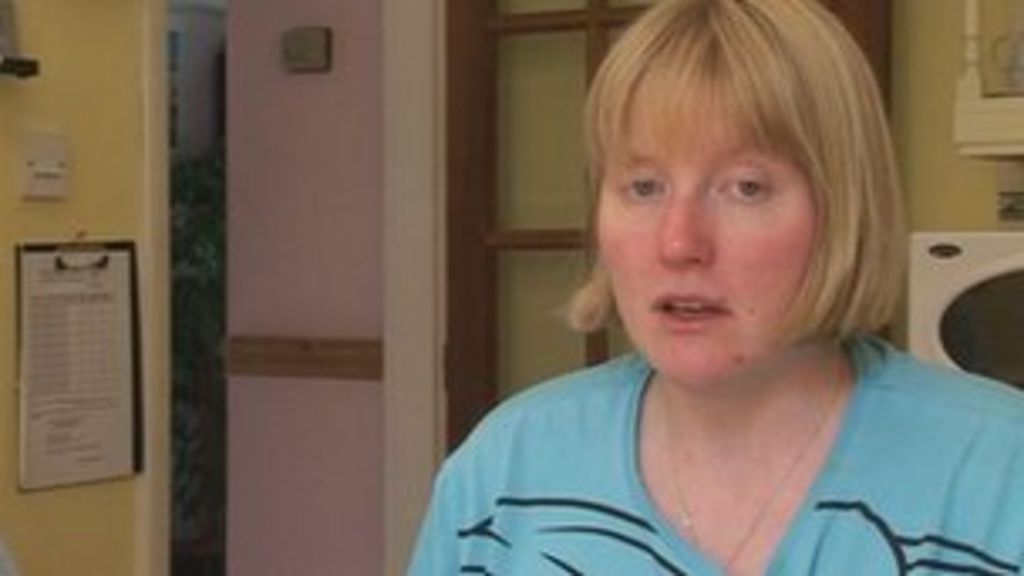
BBC South Health Correspondent
In the world of Asperger syndrome, Victoria Harris is a success story with a job and a long-term relationship.
She is among just 12% of people with the condition currently employed in Britain, according to the National Autistic Society.
But Miss Harris, from Weymouth in Dorset, has now been going out with her boyfriend Matt Dale, who has Tourette's syndrome and obsessive-compulsive disorder, for four years.
But life is going well for Miss Harris and, along with her partner, she recently took part in the Weymouth Carnival parading in front of 100,000 people.
"I can imagine a lot of people with Asperger's finding the number of people, the fact it is such a chaotic environment and being quite bothered by it," Miss Harris said.
The pair are highlighting the condition as part of a BBC South series into people with high-functioning autism and Asperger syndrome.
They said they had learned to deal with each other's conditions over the years.
Mr Dale said: "We work together with our conditions and it seems to work out really nice.
'Makes me happy'
"When we are out and about we just walk around hand-in-hand and no-one takes no notice, they don't really know anything at all.
Miss Harris was diagnosed at a young age and found it hard to make friends at school.
"Being an introvert condition you end up thinking solely about yourself.
"At that age I didn't see friends as an important thing to keep," she added.
But she now has a part-time job at a Tesco store and is in a steady relationship.
"I've been [lucky] to have been able to have both of my parents living with me and that definitely makes me feel happy," she said.
"And I am happy I have got him [Matt]."
Autism
My three daughters are autistic. I despise Autism Awareness Month.
Kim Stagliano cares for three daughters with autism. (courtesy of Kim Stagliano)
By Kim Stagliano
Kim Stagliano has authored a novel and two books on parenting daughters with autism. She is managing editor of Age of Autism.
Today, you’ll be seeing a lot of blue: World monuments will be cast in blue lights, your co-workers will be wearing blue clothes, and companies will be hawking blue products. Why? April 2 is World Autism Awareness Day, when advocacy group Autism Speaks “celebrates” its international Light It Up Blue Campaign. But while you’ll be seeing blue everywhere, I’ll be seeing RED.
My three daughters are autistic. I despise Autism Awareness Month.
Autism shouldn't be celebrated.
I dread April, which has been designated as Autism Awareness Month. As mom to three young women with autism – ages 20, 18 and 14 – I eat, sleep and live autism every day. My youngest daughter, Bella, can’t speak a word and was abused on a school bus, leading to a criminal case. My oldest, Mia, had hundreds of grand mal seizures a year from ages 6 to 10. My middle child is wracked with anxiety. For all three, I have to cut their food, tend to their monthly feminine needs, and bathe them. They will need that daily living assistance forever; when I die, a stranger will have to do those things for them.
For me, this should be a month of solemn acknowledgement and education about a global crisis.
Some advocates suggest autism is advantageous – even a gift. Before backtracking on his comments last year, Jerry Seinfeld said he believed he was on the autism spectrum, casting it not as a disorder, but “an alternative mindset.” It made me angrier than the Soup Nazi.
Let’s be clear: Autism is no walk in the park for those who have it, nor for their loved ones.
One study found that just 35 percent of autistic young adults had attended college and just 55 percent had been employed during their first six years after high school.
If you’re compelled to contribute to Autism Awareness Month, I suggest you Instead of attending pep rallies and wearing blue bracelets, give to an organization that provides service dogs for autistic children or volunteer as an autism buddy. If your child has a classmate on the spectrum, invite that classmate to your child’s next birthday party. You know that cashier at the grocery store who doesn’t look at you as she takes care of your order? Smile at her, even if she doesn't smile back. The best way we can support Autism Awareness Month is to turn it into Autism Action Month. People with autism deserve a bright – not just a blue – future.